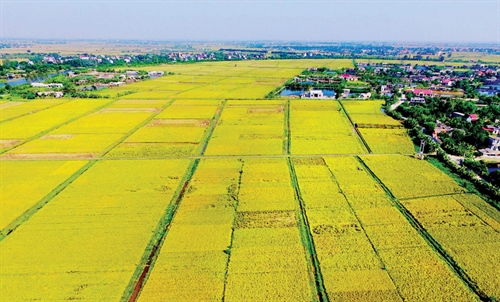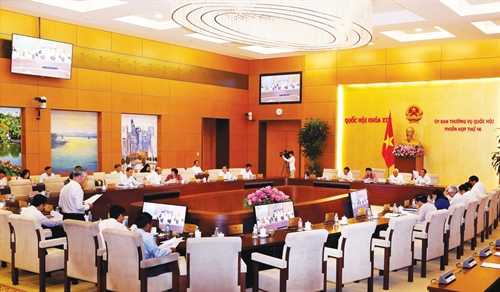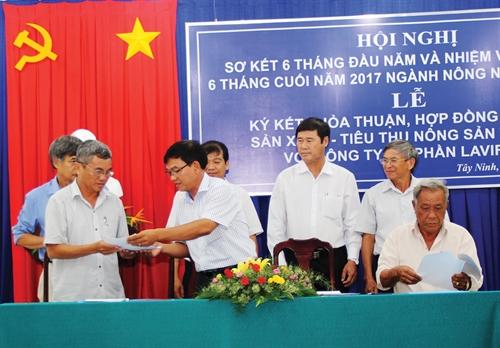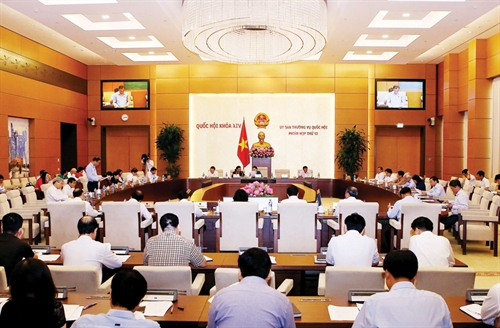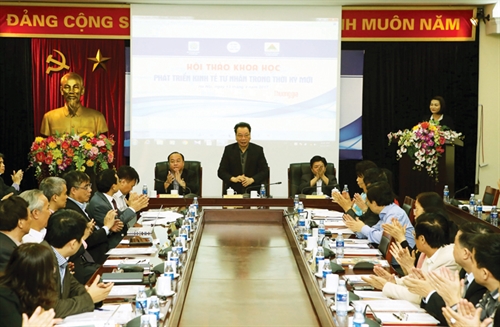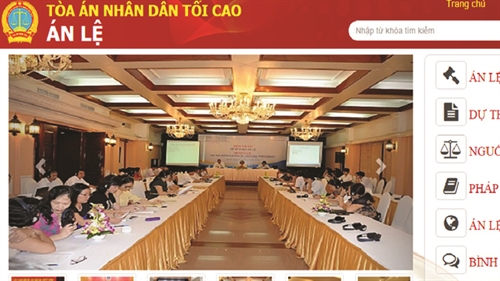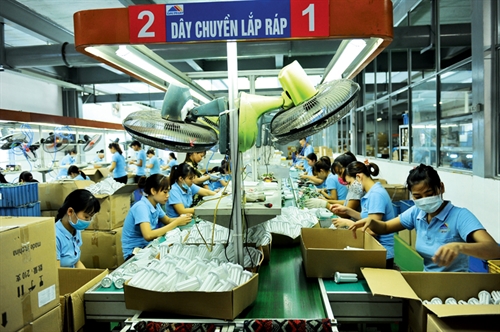At the National Assembly (NA)’s fourth session, slated to last 26 days from October 23 to November 24, legislators are expected to pass six draft laws and a dozen of draft resolutions and debate nine draft laws.
The to-be-passed laws include the Planning Law; revised Law on Public Debt Management, revised Law on Forest Protection and Development, and revised Law on Fisheries; and amendments to the Law on Credit Institutions and Law on Overseas Representative Missions of the Socialist Republic of Vietnam.
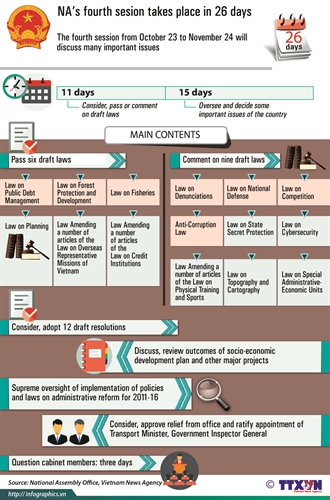 |
Important resolutions to be adopted include those concerning the socio-economic development plan, state budget estimates, and allocation of central budget funds for 2018; land recovery and compensation for the Long Thanh international airport project; oversight of the implementation of policies and laws on state administrative reform; and mechanisms and policies for development of Ho Chi Minh City.
The draft Laws on Special Administrative-Economic Units; Cybersecurity; and Protection of State Secrets; and draft revisions to the Law on Denunciations; Law on National Defense; Law on Competition; and Law against Corruption are among those to be commented at the session.
Particularly, lawmakers are expected to approve the relief from office of the Minister of Transport and Government Inspector-General and the appointment of their successors.
They will spend 15 days discussing and deciding on several important issues of the country such as socio-economic development, state budget estimates, crime prevention and control, and settlement of complaints and denunciations. Another three days will be reserved for question and answer sessions.
Worthy of note, draft amendments to the Law on Overseas Representative Missions of the Socialist Republic of Vietnam provide criteria for ambassador extraordinary and plenipotentiary; and the mechanism on home-based ambassadors to foreign countries where Vietnam has not yet established diplomatic representative missions or has not yet appointed ambassadors.
Other proposed amendments include provisions on consular tasks and external information tasks of representative missions; appointment, relief from office, assignment and recall of Vietnam’s ambassadors extraordinary and plenipotentiary in foreign countries; regimes and policies for members of representative missions and their spouses and children; and working coordination between visiting delegations and representative missions.
All growth targets to be fulfilled
The gross domestic product (GDP) this year is expected to reach 6.7 percent, on point with the previously set target, says the Government’s report on the country’s socio-economic development in 2017.
According to the report delivered by Prime Minister Nguyen Xuan Phuc on the opening day of the session, Vietnam’s GDP achieved 6.41 percent over the last nine months of the year, with growth on the momentum again, after a disappointing first quarter.
“Such positive growth shows that the economy restructuring, in line with changing the growth model, is starting to take effect, as the economy gradually becomes less dependent on exploitation of natural resources, especially oil and gas,” Phuc said.
The report reveals that Vietnam is likely to fulfill all 13 socio-economic targets set for the whole year, of which five are expected to exceed the plan, including trade deficit, which is forecast to stand at only 1.5 percent compared to the planned 3.5 percent. Total development investment is likely to reach 33.42 percent of the GDP instead of 31.5 percent set earlier.
At the same time, export growth is to hit 14.4 percent, doubling the set target of 6-7 percent. The rate of hospital beds will be raised to 25.7 per 10,000 people against the set goal of 25.5 beds, while health insurance coverage is predicted to reach 83 percent against the planned target of 82.2 percent, said the PM.
Phuc reported that the average consumer price index rose 3.79 percent in the first nine months of this year and is expected to reach about 4 percent in the whole year, with basic inflation standing at about 1.6 percent. Meanwhile, the poverty ratio as calculated by the multidimensional approach dropped 1-1.5 percent to about 6.7-7.2 percent.
He held that this is a great success of the country, especially in the context that Vietnam is transforming its growth model toward reducing the exploitation of natural resources and strengthening the processing industry, hi-tech agriculture as well as services and tourism.
Total export revenue is set to expand by 7-8 percent, while trade deficit is expected to stand at below 3 percent of the total export value.
For 2018, development investment of the whole society is hoped to account for about 33-34 percent of the GDP.
Meanwhile, the PM also set the targets of curbing the poverty rate by 1-1.3 percent averagely and 4 percent in poor districts, and keeping the unemployment ratio in urban areas at below 4 percent.
In 2018, the percentage of trained laborers is expected to reach 58-60 percent of the total workforce. The rate of health insurance buyers is expected to hit 85.2 percent of the population.
The country will also strive for the target that 88 percent of industrial parks and export processing zones will have centralized wastewater treatment systems, and the forest coverage reach 41.6 percent.
In order to achieve the targets, the PM outlined five major solutions, including strengthening the macro-economic stability, ensuring balance of the economy, and speeding up business and production as well as economic growth.
The PM also pointed to the need to restructure the economy in a synchronized, comprehensive and practical manner, along with making proactive response to climate change and disasters, environmental protection and natural resources management.
He also emphasized the necessity of building an effective and disciplinary administrative system and drastically fighting corruption.
Economic challenges ahead
Head of the NA’s Committee on Economic Affairs Vu Hong Thanh warned about several challenges that would undermine the country’s economic development in the near future.
Bad debts have been a prolonged heated issue over the last few years. The bad debts recorded in the banking system were below 3 percent, Thanh said, but the rate in the whole economy was very high.
The equitization of state-owned enterprises was ongoing but problems remained in the valuation process and the selection of shareholders, he said.
The business environment was far from pro-business as the government intended, as business conditions, or so-called sub-licenses, were still blocking the way.
“While the number of new firms has been increasing, those stopping operations or awaiting dissolution were on the rise as well,” Thanh said.
The sub-license issue was also one of the biggest complaints of Vietnamese citizens, said Tran Thanh Man, Chairman of the Vietnam Fatherland Front Central Committee.
“The people ask the Government to accelerate the simplification of administrative procedures to ensure transparency and to come up with breakthrough policies favorable to businesses,” he said.
To overcome the economic difficulties, one of the measures put forward by the Government is to cut spending. Starting from the 2018 fiscal year, only ministers and holders of equivalent titles may use public cars. The current use of public cars by lower-rank officials will also be reviewed.
The NA’s Committee on Financial and Budgetary Affairs proposed major cuts in funding for ceremonial activities, festivals and other meetings.
Budgets for inaugural ceremonies for infrastructure projects and other activities not included in Government-approved lists will not be allowed, according to the Committee’s Chairman Nguyen Duc Hai.- (VLLF)
